
Black Narcissus, on FX Nov. 23rd is a new iteration of the classic psychological thriller about faith, repression, imperialism, and nature’s majesty. British nuns arrive in Mopu, Himalayas, in 1934. Their mission is to take over an abandoned castle, convert locals and bring order to the wild place. Sister Clodagh, played by Gemma Arterton, leads them with a steel fist, as the younger women try to adjust to the new world, oblivious to its ancient culture and spiritual life. The nuns begin to lose their grip on reality during a difficult winter of the soul and body. What She Said’ Anne Brodie spoke with cast members.
Had you seen the 1947 film or read the book? What appealed to you about the script?
Gemma Arterton – The book and the script really delve into the kind of psychologies of these characters. Like, doing a miniseries is such a gift because you have the time to kind of really, you know, explore what’s really going on. This is all about what’s happening inside these people. It’s a thriller, really, a psychological thriller. And so I think, for me personally, I did feel sort of a connection, I guess, to “Clodagh,” this kind of control freak who is desperate to do well, and that kind of gets in the way, you know. She’s proud, and this pride that she has is something that I related to. It was all there on the page. It was so easy to kind of, you know, want to get involved with something like this. After I’d read the scripts and the book, I felt like, yes, this is a really fully formed character.
Alessandro Nivola – Well, I guess from my point of view, I had loved this film. I first was made aware of the original film when wife made a Scorsese movie years ago called “Shutter Island,” He made “Black Narcissus” required viewing for all of the actors. I remembered loving it and the one thing I didn’t really remember from the film was “Mr. Dean.” And when I read the script of this new adaptation, I found “Mr. Dean” surprisingly to be very psychologically nuanced. He had been traumatized by the First World War and had become disgusted with British imperialism and checked out of Western society and moved where he felt different cultures were able to live in harmony together. And, so, (the nuns) were encouraging this very British brand of Christianity in opposition to him. it seemed like an opportunity to shed new light on a character that hadn’t really been explored in much depth in the original.
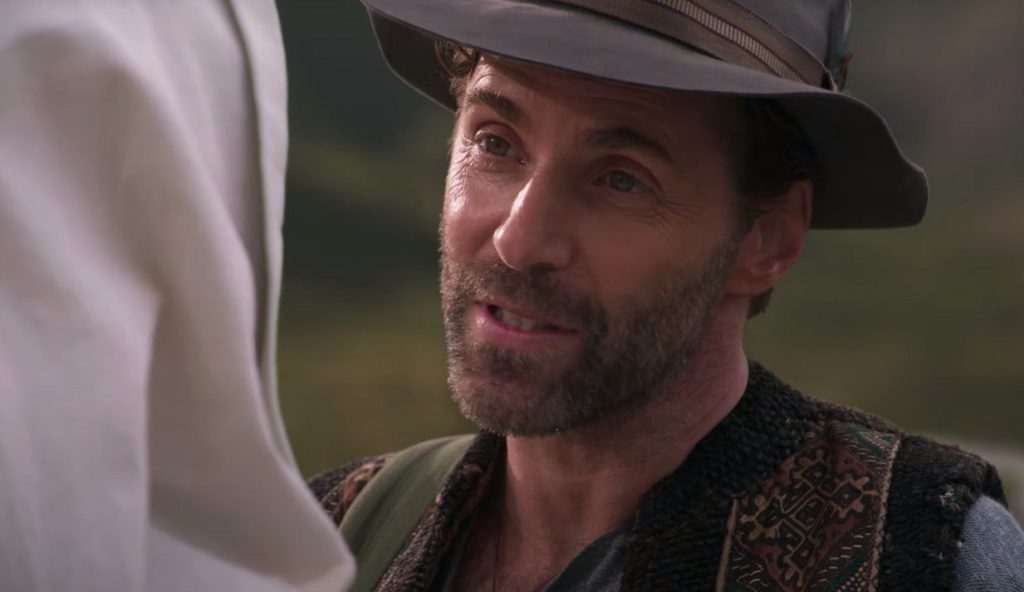
Aisling Franciosi – I completely rely on the scripts and then having read the novel and found Sister Ruth to be really interesting because, in this religious order you are asked to be stripped yourself of all identity, all of the things that make you “you” for the purpose of this blind faith, this adoration, this calling that you can’t see, just to lead blindly, and yet the psychological effects that it would certainly have on me and I could see having on “Ruth. I really felt that there was quite a vulnerable and fragile young woman who was grappling with this world that I feel she’d been thrust into.
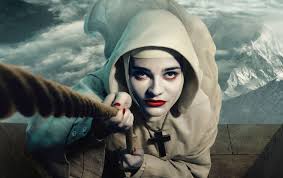
Dipika Kunwar – For me, the role is a Nepalese girl, and I am from Nepal, so it’s also about representation. Being able to find a character that is Nepalese in a show and production in the West is rare. It comes about every now and then, and this was perfect for me, and I knew I wanted it because she’s a young girl who is very simple, simplicity and innocence. And she’s not scared of falling in love or getting hurt In comparison to the movie, the miniseries had a lot more of “Kanchi.” She gets to speak, and she gets to express herself.
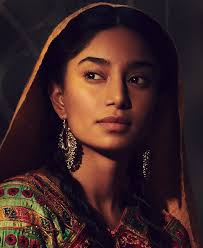
Gemma, Sister Clodagh is controlling and quick to anger. How did you understand her?
Arterton – That’s the essence of the whole thing was, kind of, maintain control, maintain control, which is so enjoyable to play. I found that the posture and the habit ‑‑ the actual costume, really helped because the nuns at that time, weren’t supposed to touch or even gaze outside of the habit. That’s why they are there, like blinders. We were completely constricted. We had these wimples that covered our ears, and our hands were inside our robes. So, there was nothing you could really do with your body. I became stiff, which I found helpful, a real anchor. We really wanted to explore why she is the way she is, a wild girl in her that’s a, freethinking person that she’s shut down by joining the order. And that was always something that she was struggling with, and when she comes to Mopu, it reminds her of the island where she was raised, and the beauty of the place starts to get under her skin, and so the control starts to shift and crumble. (Her interactions) remind her of when she was young and start to unravel her. I loved all of that.
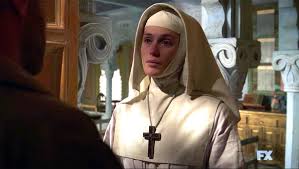
Can you talk about working with Diana Rigg?
Arterton – Well, what a joy. I mean, I knew Diana before because I’m friends with her daughter, Rachael Stirling. My husband was doing a play with Rachael Stirling, and I was waiting to hear whether I was going to do “Black Narcissus.” And I went to see the play with Diana, and she asked me what I was doing next, and I cheekily went “Black Narcissus” even though I hadn’t gotten the part yet. And she said, “Oh, it’s a wonderful film, darling. That’s a wonderful film.” And I didn’t know that she was going to be in it. And then we were on set, and we are in our habits, and she was so wonderful. I mean, she’s so fun. I mean, she would have been a great young Clodagh, actually. There’s something about that there. I remember we just had fun on those days. She told me about this cocktail that she made for herself called “D’s Dynamite,” and it’s one-part Cointreau and the rest Prosecco. And so, on her last day, I brought in some Prosecco and Cointreau, and we had them. What an absolute honor to have worked with her on this and, you know, what an amazing legend she was, but I only had just the best memories working with her.
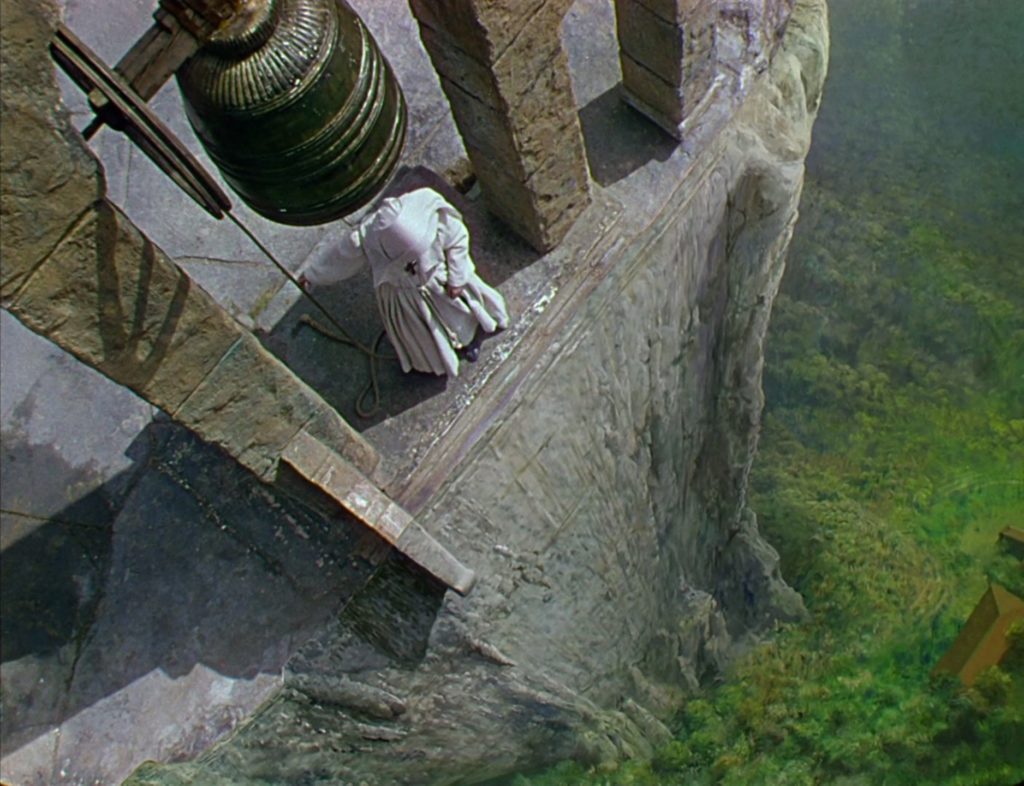
Gemma yours is the most formal of all of the characters, truly deeply formal. Not just because of the habit and the job. You have British roots and this sense of classism that carries over into this free place.
Arterton – Oh, yes, the classism. I mean, there was so much of that, this sort of idea that the nuns come in to convert people and just try to take over. There’s the holy man that’s praying, meditating in his spot, and “Sister Clodagh” just says, you know, “He’s not appropriate. He needs to go,” and this kind of idea that our way is the right way, you know, which is just awful and something that has been going on for centuries across the world with British colonialism and still exists. That’s one of the big things here, but it was really important for us to convey that sense of that they are right. Sister Clodagh softens and starts to understand that that’s not necessarily the right way. But, yeah, it was really important for us to convey that sense of ownership, I guess.
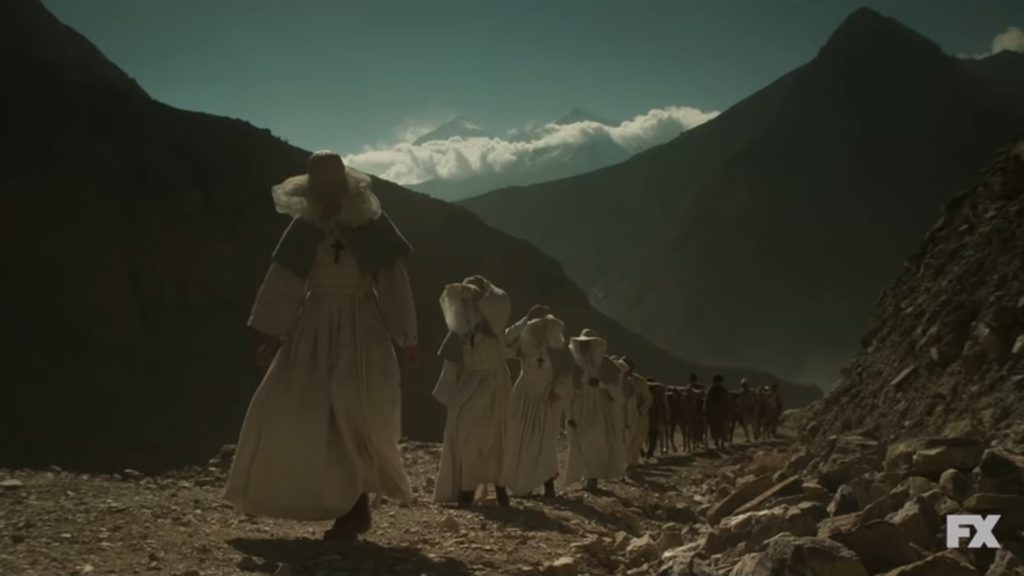
What was it like shooting on a site like that, so beautiful?
Arterton – We were so, so, so lucky that we got to go to Nepal. It took us something like two and a half days to get to this final destination, which is called “Jomsom,” which is on the Nepalese Tibetan border. The journey itself is so fatiguing, and it’s not even anything close to what the nuns would have experienced. The air is really thin, and you get altitude sickness, but it makes you feel really alive, and it’s the most beautiful place I’ve ever been to. So we were so lucky to be able to see that because it’s a huge part of why the nuns, kind of, unravel the kind of ‑‑ the godliness of the place makes them start to question God, and so that was ‑‑ just to feel that kind of ‑‑ in the middle of nowhere. And we were up there, and it was just magic. We were so pleased that we got to experience that. And then, when we came back to Pinewood and shot a lot of the interiors in the palace, we had that in our minds so we could remember that, which was invaluable as an actor.
Charlotte Bruus Christensen (Director and Cinematographer) – I just want to say that that thing of actually realizing how beautiful it is out there. If you haven’t been before, and you can look at pictures and things, but to actually be up there. The mornings were just extraordinary, and this story is so much about that, how beauty ‑‑ how you cannot control this place. I mean, you can try to control yourself and your past, and you can try to escape all the things that you did wrong if they were wrong. And “Mr. Dean” says it quite clearly early on in Episode 1, “Time doesn’t exist”.
Franciosi – I can only speak for myself, but I find that when I’m somewhere where there’s vast beauty and total isolation or even if you look into space, I get a crushing feeling that you don’t matter, you are irrelevant in a way, which is a very humbling feeling. But it was useful, I think, as well for me, personally, for Ruth to kind of tap into that irrelevance.
Black Narcissus is a three‑episode limited series premiering on Monday, November 23rd, beginning at 8 p.m. Eastern and Pacific on FX.